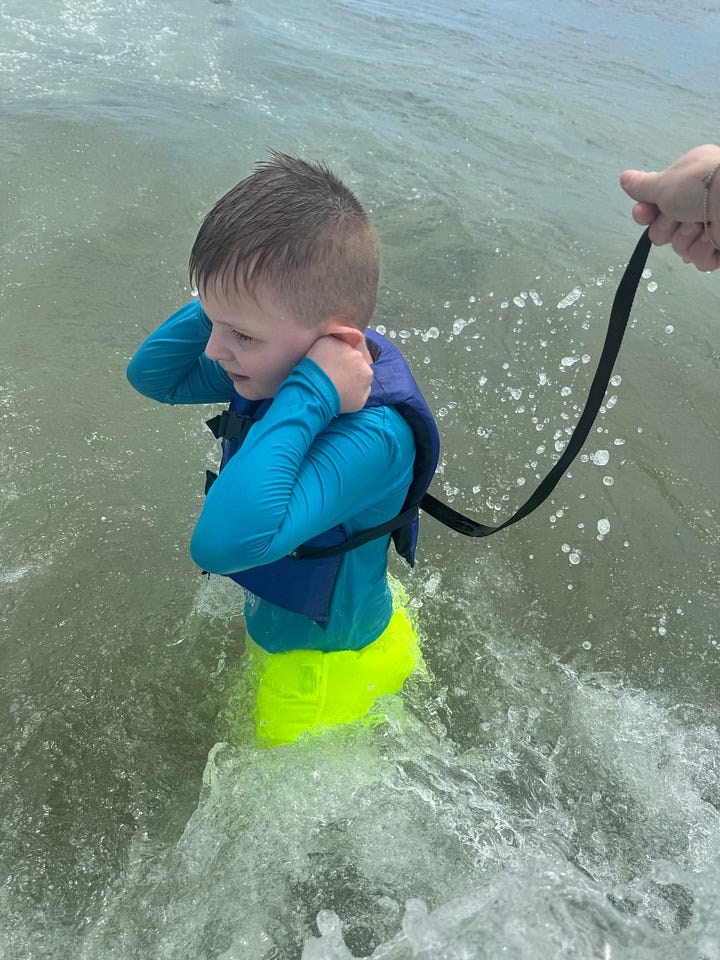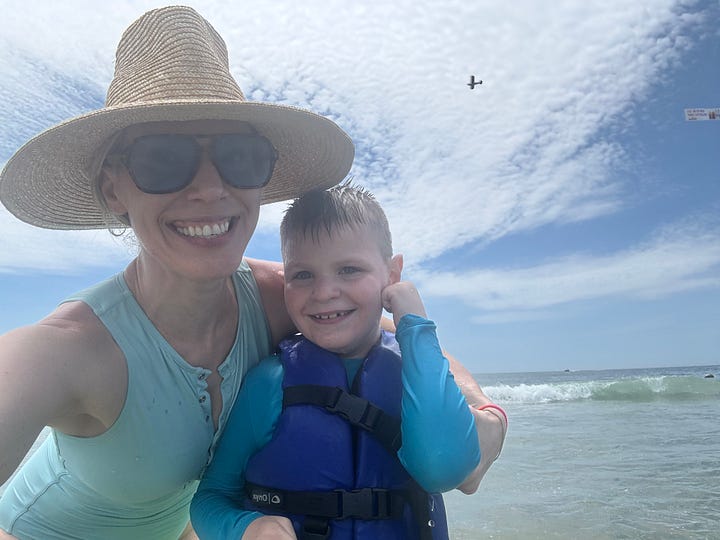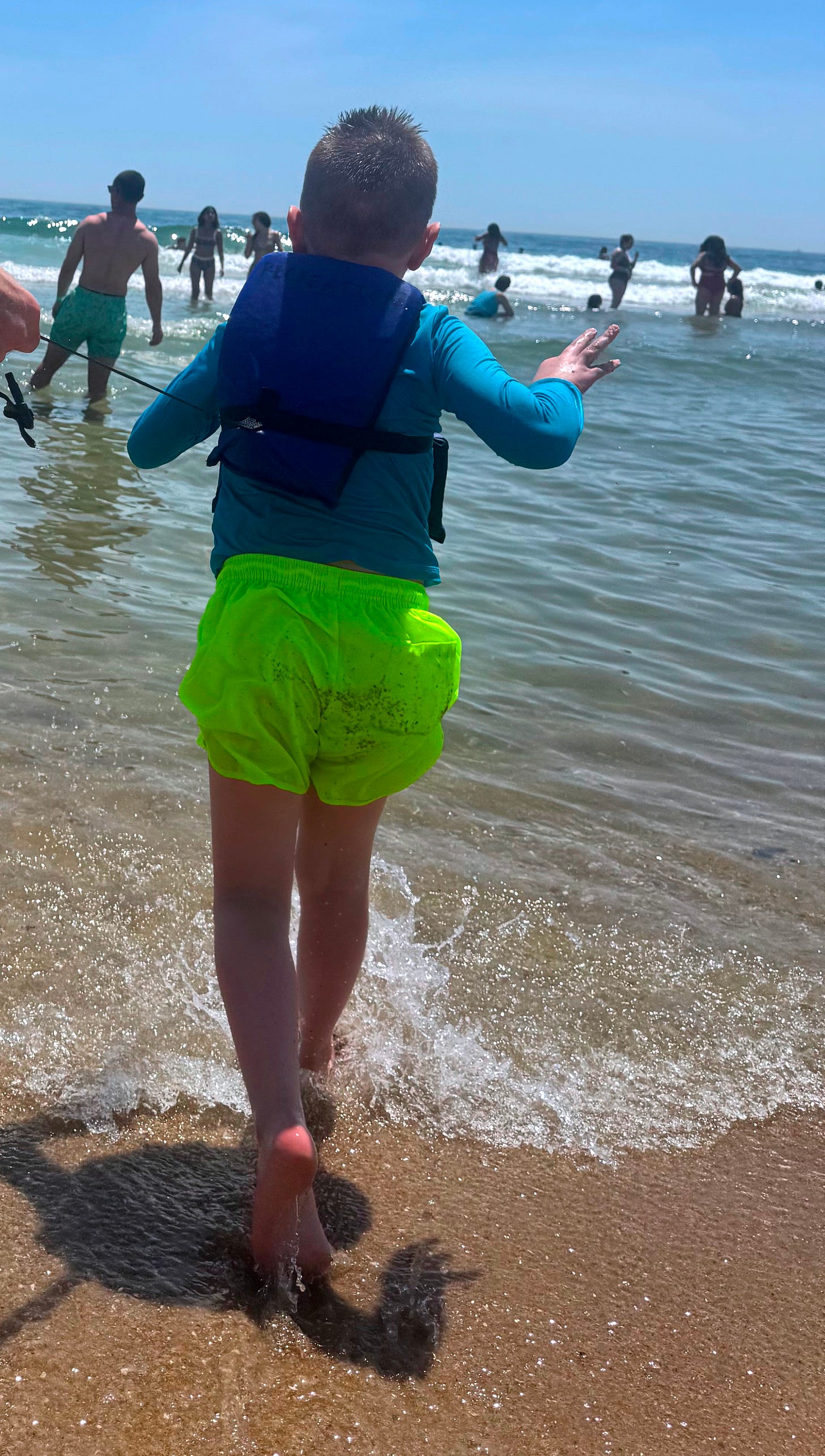Let Them Look: What Happens When We Stop Hiding Our Autistic Kids from the World
They stare. They whisper. But that discomfort is not more important than my child’s right to exist, thrive, and grow in public.
Inspired by the cultural wave of Mel Robbins’ Let Them, this piece explores what it means to apply the same principle as a mother raising a profoundly autistic child. Sometimes the most radical act is letting the world witness your child, exactly as they are.


I’ve read all the books. I know all the statistics.
In fact, I’m likely either numb or calloused at this point to the phrase “rising autism rate.”
Children with autism are drawn to water. That’s real.
The sensory calm. The joy. The way water holds them when the world often doesn’t.
Also real?
Drowning is the leading cause of death for autistic children under the age of 14.
That fact alone could give me a stroke.
It’s not an abstract risk. It’s something my nervous system knows deep in its wiring.
Something it tracks constantly, like a silent radar I can’t shut off.
And that’s just it.
Sometimes I think this global village of information, this 24/7 stream of alerts, headlines, and parenting strategies, was never meant for the human central nervous system.
Not for mine, anyway.
Because mine is already running surveillance full-time.
It hums at a level of alertness that most people will never understand.
And while it serves me, it also pulverizes me.
That’s the paradox.
It keeps my children safe. But it shreds me in the process.
And yet, here I am. Still choosing interaction over isolation.
Getting Milly and Mack out into the world.
Because here’s what’s become wildly clear to me:
It’s not that I have “competitors” in the autism world. I don’t.
The only barrier to any goal in my life is myself.
What I do have as a reflection back to me are other mothers of profoundly autistic children.
Many of them are deeply loving.
And deeply isolated.
They are paralyzed.
By fear.
By shame.
By the potential disruption their child might cause in public.
But sometimes the “disruption” is actually the growth.
Sometimes the meltdown is the breakthrough.
Sometimes the noise is just communication, unrefined.
And if we don’t give our kids the space to be in the world as they are, how will the world ever learn to meet them?
Take Mack.
My son. All boy at age seven.
(Feral as the day is long! I say that with love and light, loving humor. Boys really are a variety of Homo sapiens I am not, as a female.)
He is non-speaking. Profoundly autistic.
He still wears a life vest in any body of water…especially the ocean.
He still stims and flaps visibly in public.
He covers his ears. He squeals.
He radiates.
And the ocean…the ocean is his cathedral.
It’s where he becomes more of himself.
The best part of his boyhood is brought out in open water.
And yes, I see the other kids looking.
And yes, I notice the glances.
But I also know:
Mack’s ability to become the best version of himself is because he lives outside the walls of his home.
He is not hidden.
He is not “only manageable” behind closed doors.
He is out in the world.
And yes, that’s vulnerable.
But it’s also revolutionary.
I don’t get to switch off.
I don’t get to rest easy.
But I do get to watch him become.
And I will always choose that.




One comment. You are right, but..My son has severe autism. He is an adult, non-verbal, has pica and meltdowns, etc. I've always tried to take him out, but a tantrum or crisis can end up with some bystander deciding you're abusing your child. They call the cops and the fun begins. We have also had Children's Services sicced on us by ignorant people. Instead of calling the police, please ask if there is any way to help. What I am doing, or the people who work with him are doing, is trying to save my son from injury, keep myself safe and be aware of bystanders so they don't get hurt. I really could use some help.